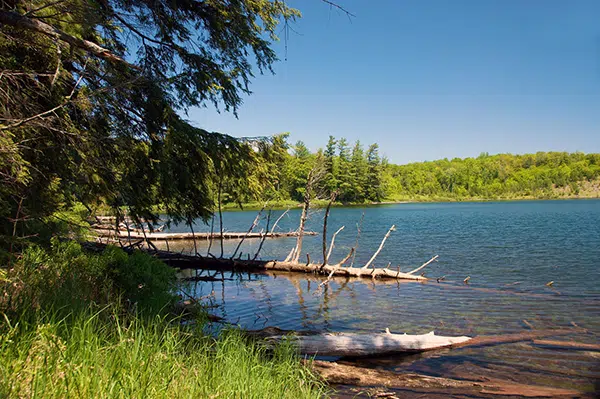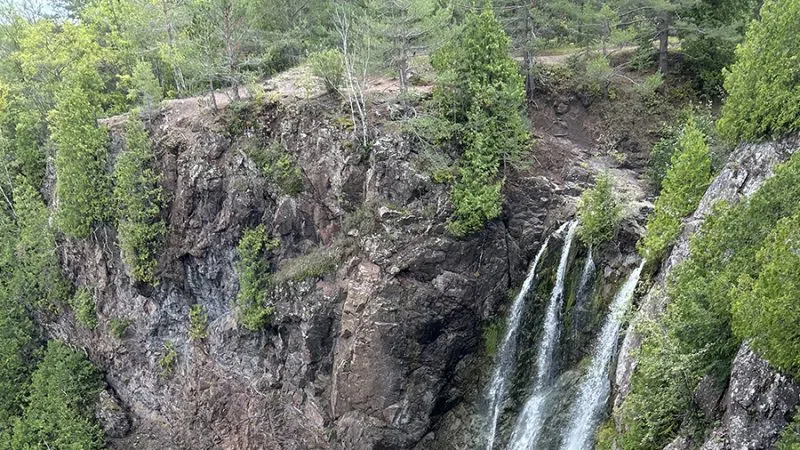Having gathered public input from boaters and anglers, the Michigan Department of Natural Resources will not develop the Silver Lake Basin boating access site in Marquette County as a walk-in-only facility.
Earlier this year, the department said it was considering installing a gate near the state-managed boating access to the 1,214-acre lake northwest of Marquette.
With increased popularity and use, several problems have resulted the proposal hoped to address, such as shoreline camping, littering and human waste.
“We’ve had a good deal of input from the public, including during a meeting held in February in Negaunee Township,” said John Pepin, DNR deputy public information officer. “Folks said they wanted us to keep the site relatively primitive, but to not make access more difficult by erecting a gate.”
Deb Gill, who oversees the site as part of her duties as unit supervisor at Van Riper and Craig Lake state parks, said some changes at Silver Lake were suggested.
“Public comment was in support of the existing condition with a few upgrades, including the addition of a gravel ramp, improved parking and a vault toilet, with the entrance road on DNR-managed property repaired through regular maintenance,” she said.
Gill said her staff will address “no camping” and other signage, trash cleanup and will work with DNR law enforcement officers to police potential issues as they arise.
Doug Rich, western Upper Peninsula district supervisor for the DNR’s Parks and Recreation Division, said DNR Fisheries Division and Michigan Department of Environment, Great Lakes and Environment staffers are discussing potential funding sources for making the improvements.
The state of Michigan acquired the basin’s access site in 2015. Before that, the land surrounding the lake was almost entirely owned by corporate forest interests and a few other non-public use entities.
Beyond the camping and garbage concerns, invasive species pose a threat.
“Native land-locked whitefish are part of the fishery at Silver Lake. Whitefish populations are in peril in the Great Lakes region due to lakes becoming warmer over the past 30 years,” said George Madison, DNR fisheries manager. “With whitefish being a plankton-diet foraging fish, their numbers in the Silver Lake Basin would be negatively impacted if the invasive plankton known as the spiny water flea were to be introduced into this lake.”
Since the Silver Lake Basin is at the most upstream portion of the Dead River watershed, if any aquatic invasive species were transferred to this lake by larger boats, the invasive organisms could pass downstream to colonize four additional reservoirs in the Dead River watershed, threatening additional fish populations.
Anglers and boaters will be reminded to use best practices to help keep invasive species from reaching the Silver Lake Basin. The gravel boating ramp and the shallow water depth around the site will continue to discourage use by large watercraft.



























Comments